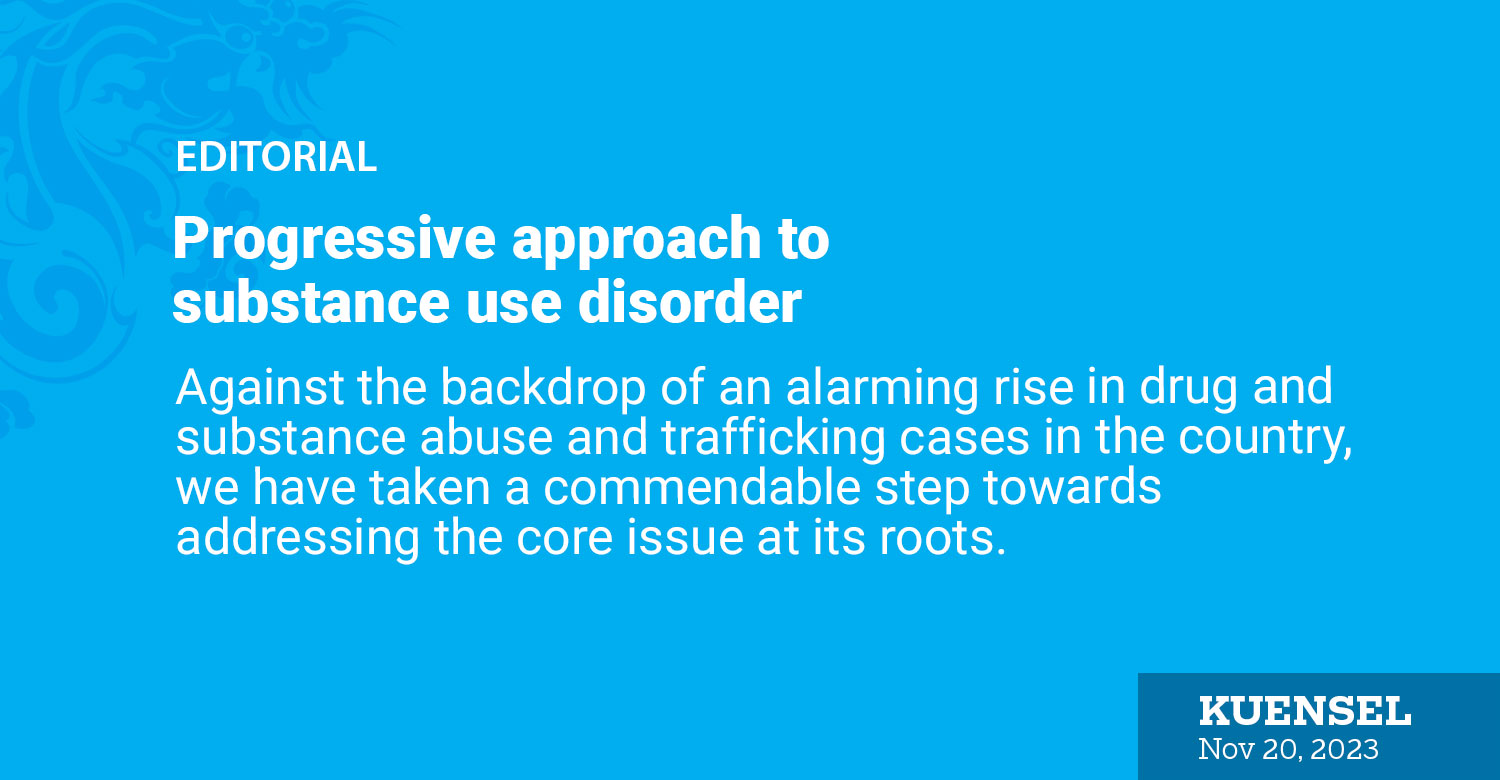Against the backdrop of an alarming rise in drug and substance abuse and trafficking cases in the country, we have taken a commendable step towards addressing the core issue at its roots. The recently launched Substance Use Disorder Treatment and Care programme at Chamgang Central Jail in Thimphu is not just a symbol of compassion but a strategic move to transform inmates into productive and responsible citizens.
This initiative, unveiled on November 11 to mark the birth anniversary of His Majesty the Fourth King, marks a significant milestone in Bhutan’s ongoing efforts to combat the scourge of substance abuse. The programme’s focus on providing a structured and holistic approach to rehabilitation is both innovative and pragmatic, acknowledging the complex nature of addiction and the challenges faced by individuals trying to reintegrate into society.
At the heart of the programme is a 12-step guide, a self-help mechanism that has proven efficacy in various global contexts. This evidence-based approach recognises the need for individuals to actively participate in their recovery, fostering a sense of ownership and accountability. By incorporating Sorig Zhiney and Luejong mindfulness practices, the programme not only addresses the physical aspects of addiction but also delves into the mental and spiritual dimensions, promoting a comprehensive and transformative healing process.
Moreover, the inclusion of yoga practices speaks to the forward-thinking nature of Bhutan’s approach to rehabilitation. Yoga has been recognised globally for its therapeutic benefits, offering inmates a means to cultivate physical well-being, emotional balance, and mental resilience. Integrating such practices into the treatment regimen demonstrates a commitment to treating the whole person, not just the symptoms of addiction.
The emphasis on livelihood and skills training is a crucial component of the programme, recognising that successful reintegration into society requires more than just overcoming addiction. Equipping inmates with tangible skills enhances their prospects of securing employment and contributing meaningfully to their communities. This proactive approach not only reduces the likelihood of recidivism but also empowers individuals to rebuild their lives with a newfound sense of purpose.
Reintegration and aftercare support constitute the final phases of the programme, acknowledging that the journey to recovery extends beyond the prison walls. By providing a support system for individuals as they transition back into society, Bhutan ensures that the positive strides made during incarceration continue to flourish, reducing the risk of relapse and promoting sustained well-being.
The urgency of such initiatives cannot be overstated, especially in the face of the sobering statistics presented by the Royal Bhutan Police. With nearly half of the individuals apprehended in the first half of 2023 facing drug-related charges, the need for comprehensive rehabilitation programmes is evident. The fact that nearly one-third of Bhutan’s prison population is incarcerated for drug-related offenses underscores the critical role that initiatives like Substance Use Disorder Treatment and Care play in breaking the cycle of addiction and criminality.


